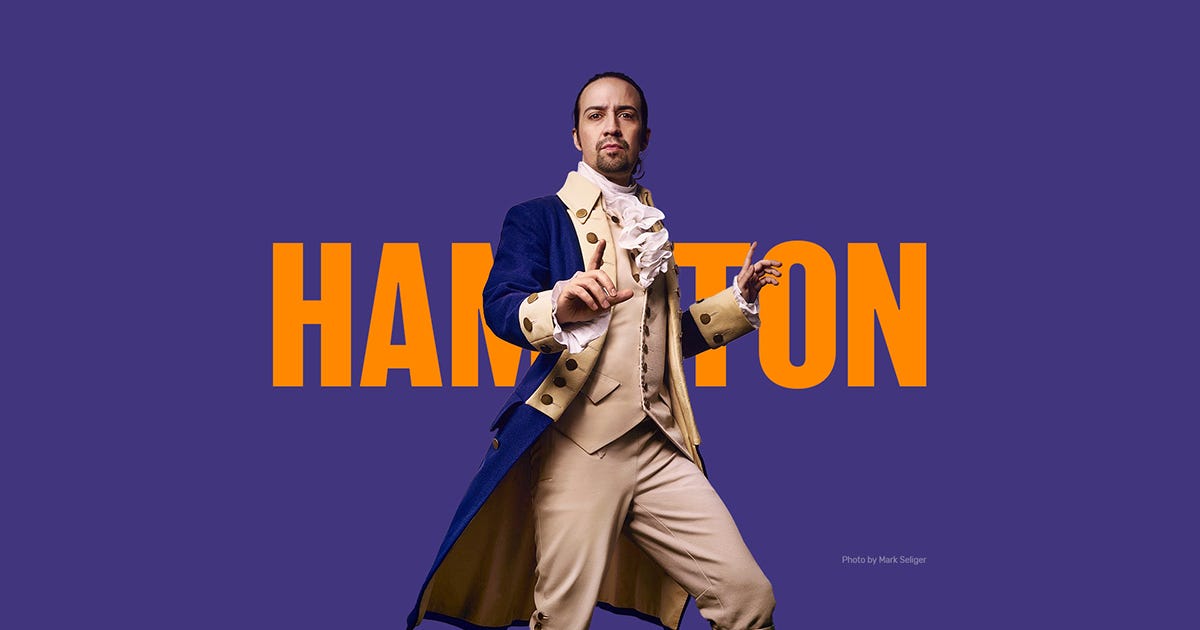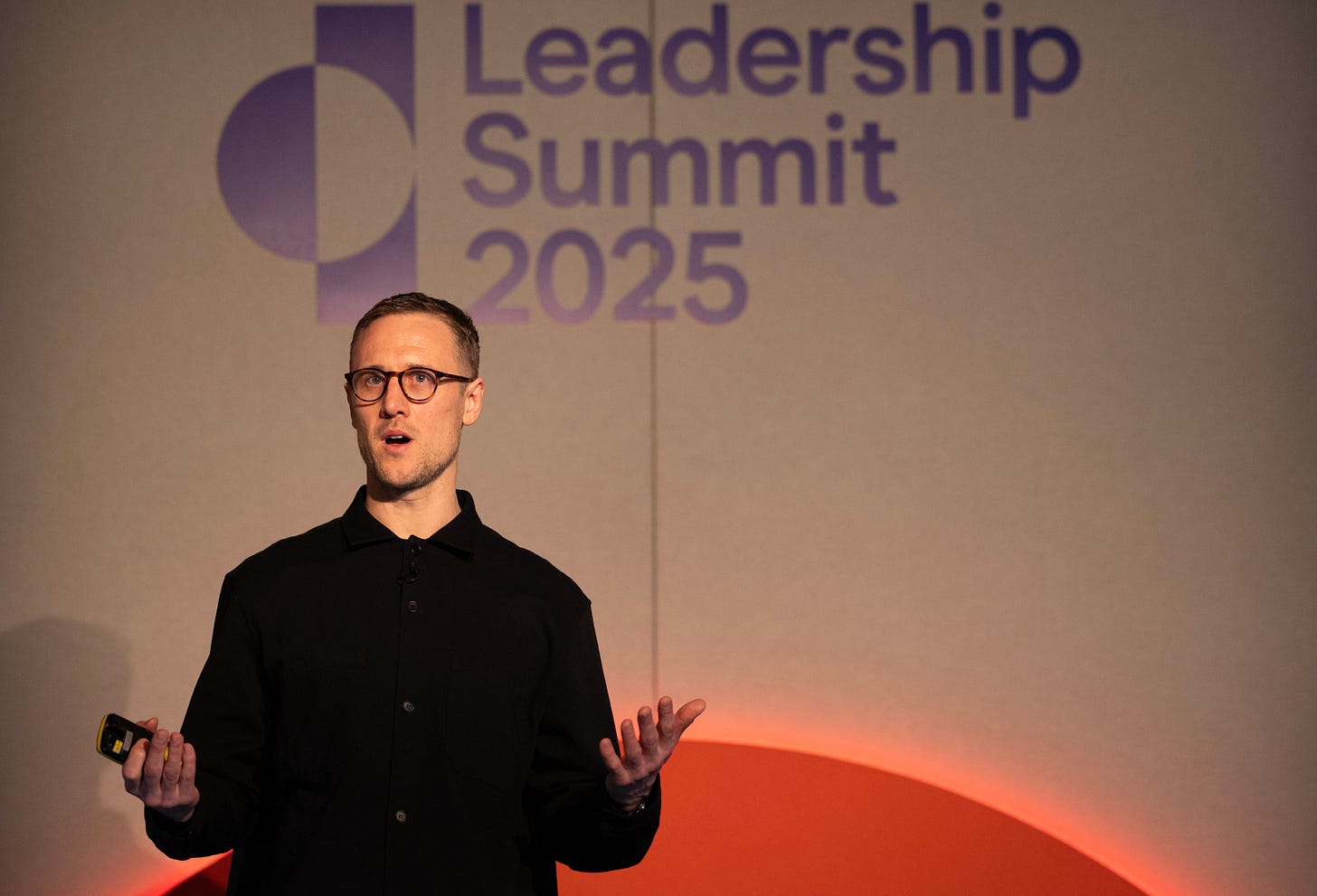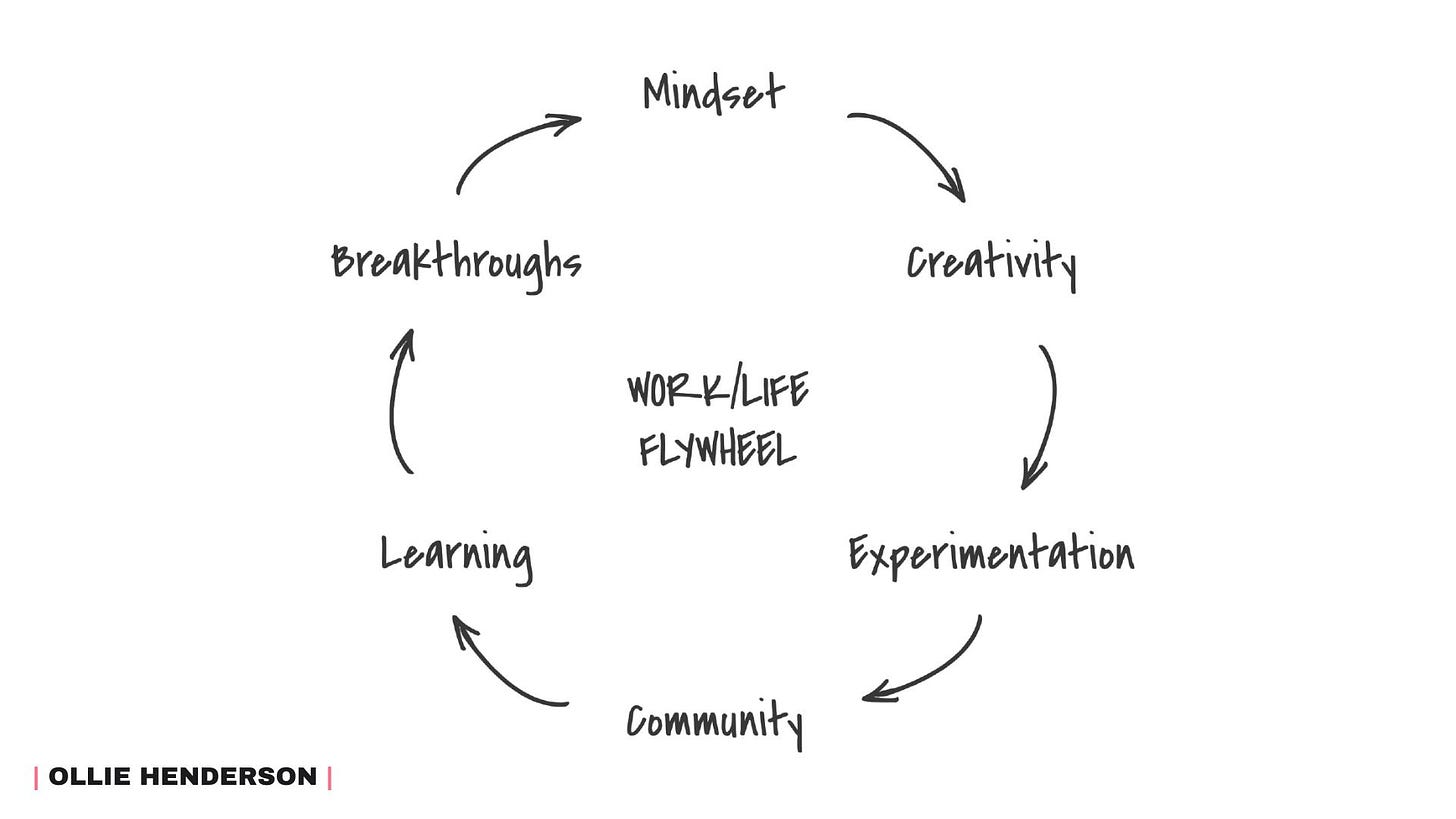I write Future Work/Life to help you build great teams and careers. If you find it interesting, please share it!
Lin-Manuel Miranda had a problem.
As a Broadway composer, he'd achieved modest success with In The Heights, but he wasn't revolutionising musical theatre. Meanwhile, his love of hip-hop remained a separate passion.
This wasn't just casual interest - Miranda was a deep student of the form. Growing up in New York during the golden age of hip-hop in the late '80s and early '90s, he'd been shaped by artists like Biggie, Jay-Z, Nas, and Rakim. He often said that hip-hop taught him how to write - the rhythms, wordplay, and internal structures that would later define his work.
While on holiday in 2008, Miranda picked up Ron Chernow's biography of Alexander Hamilton. Something unexpected happened.
He didn't just see a founding father's story - he saw what he later called ‘a hip-hop story’ full of intensity, battles, and personal reinvention. assigning distinct lyrical styles to each character: Hamilton with a relentless Eminem-inspired flow, Jefferson with Biggie's flamboyance, and Washington with Common's steady authority.
Instead of keeping these worlds separate, Miranda integrated these passions, creating Hamilton - a revolutionary musical that transformed theatre, won 11 Tony Awards, and created an entirely new category.
He didn't just become a better composer by adding new skills. He created a category of one by connecting his professional dots in a way no one else had imagined.
My Personal Revelation
Last week, I experienced my own version of this revelation - although I’m not going to claim it's as noteworthy as Miranda's (yet).
Standing at the IAB Leadership Summit in front of advertising leaders - a world I'd left behind five years ago - something clicked as I spoke about five generations in the workplace.
The audience wasn't just nodding because the content was good. They were engaging because I was bringing something unique: advertising expertise combined with future of work insights.
For years, I'd drawn a clear line between these chapters of my career. My advertising background was ‘the past’ - interesting experience, but not relevant to my new path.
But in that moment, I realised I'd been sleeping on my greatest asset. I wasn't just a future of work specialist visiting the advertising world. I was offering a perspective no one else in the room could provide.
And since I've been thinking about it more, I've realised this idea works in multiple contexts.
Today, for example, I'll be speaking to public sector. While I'm not an expert on public sector policy, I am bringing valuable insights from advertising and tech - industries that I’ve been immersed in that excel at collaboration and innovation – the focus of my session. Again, I'm uniquely positioned to lead that conversation.
But that’s enough about me…
The Power of Connecting Your Career Dots
The point is that we're often told to accumulate skills, gain credentials, and build diverse experiences. But our real competitive advantage just doesn't come from addition - it comes from unique combinations.
Bringing together different experiences or connecting interests you're unusually passionate about creates exponentially more value than simply collecting new skills.
And if you look carefully, you start seeing this pattern of creating value through unique combinations everywhere:
Angela Duckworth combined experience as a management consultant, teacher, and psychologist to pioneer 'grit' research and transform how we understand achievement.
Atul Gawande merged surgical expertise with exceptional writing talent to become healthcare's most influential translator of complex medical concepts.
Phil Askew: Graphic designer turned coach who integrated photography with mentoring, creating portrait sessions that help clients see themselves differently.
Bernhard Kerres: Opera singer to tech executive to Vienna Concert House CEO. Now coaches through 'Musical Group Coaching' with live classical musicians.
Carly Sandland: TV publicist for shows like Strictly Come Dancing who now matches women with birth doula support, promoting the doula category while helping individuals grow their businesses.
Creating Your Category of One
The good news is, we all have our version of this.
So how can you start identifying yours?
Map your (seemingly disconnected) experiences: What skills, experiences, and passions do you have? In work and life?
Identify the tension points Where do your different domains contradict each other? These tensions often provide the most interesting insights.
Test unique combinations: How could you bring these combinations together? What problems could this help you solve? What stories could you tell in new ways?
Christopher Lochhead knows a thing or two about this – he literally invented the category of category design – the idea that the most successful companies don't compete in existing categories, they design new ones (Salesforce didn't try to be better CRM software, they created 'Cloud CRM').
And Christopher will tell you the same principle applies to careers – designing your path by focusing on your unique superpowers. Your unique point of view of the world. In Christopher’s case, thats:
“5 learning differences. Things like AD/HD, dyslexia and dyscalculia. I call it dysfucklia. (It’s a superpower.) And it’s foundational to my success.”
Your Unique Advantage
Now, if you've read my book Work/Life Flywheel, you'll know that I've written about the importance of finding your niche before - so it's not like this is a completely new insight.
But it's taken me this long to have this seemingly obvious revelation about myself. In other words, even when you're looking for signs of where to focus your time and energy, you don't necessarily spot it straight away.
That's the point of the Flywheel, really - you achieve breakthrough by continuing to move forward. By being creative, experimenting, connecting with your community and ensuring you're constantly learning
So, perhaps this will trigger an immediate lightbulb moment for you. Or perhaps it will just leave you thinking, "what's my category of one?" and then takes you five years to discover it too. That's okay.
But if you keep exploring…
So, yes, study the basics – improve your communication skills and ask more critical questions. Keep up to date with new technology, like AI, to understand how you can adapt and take advantage of new tools. But, also don’t dismiss the things you’re just innately interested in.
As Naval Ravikant advises:
“Follow your intellectual curiosity more than whatever is “hot” right now. If your curiosity ever leads you to a place where society eventually wants to go, you’ll get paid extremely well.”
Embrace the unique combinations of interests, skills and experience that make you different. That’s your greatest asset.
As Christopher Lochhead says:
“Most of us are tricked into believing that achieving personal and professional success means fitting in. What it really means is the courage to stand out.”
Have a great week.
Ollie
P.S. My new book 'Reimagine Your Career' launches April 8th - each chapter is short and gives you a few prompts to reflect on how to implement the lessons I share. Pre-order here.







